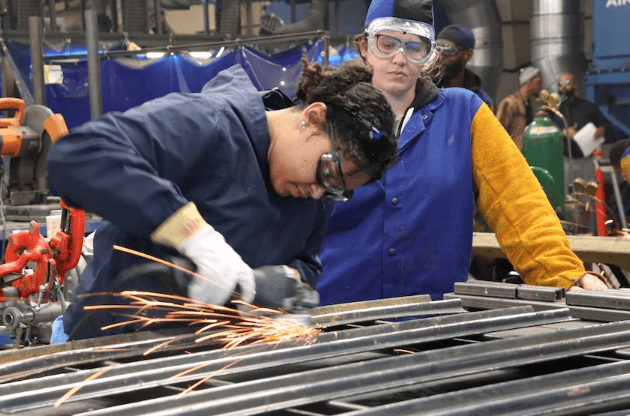Best Paying Jobs in Industrial Machinery and Components

There are several different types of industrial machinery and components jobs. Each one requires a different set of skills. If you are a mechanical engineer, you could choose to work on a powertrain or in mining and quarrying. For those who are interested in more management positions, you can work in marketing or production.
Mining and quarrying
A career in mining or quarrying is one of the best paying jobs in industrial machinery/components. Not only do these jobs offer high pay, but they are also highly rewarding. These jobs can lead to management positions, or even owning your own business. Mining and quarrying jobs are often physically demanding, and you’ll need to use heavy machinery. However, they can also provide excellent job security.
Whether you’re looking to make a career out of industrial machinery or components, you’ll need some training and certification. However, once you’ve completed your education, there are many opportunities to advance your career. The field is diverse, and there are many sub-sectors you can specialize in.
The mining industry involves the extraction of precious minerals from the earth. This process is done through underground and surface excavations. A quarry may produce granite slabs, for instance, or it may be a natural gas well. There are also several administrative jobs, including sales and marketing, accounting, purchasing, and general facility maintenance.
Powertrain Engineer
Powertrain Engineers are responsible for designing and developing engine parts and software to improve the performance of a machine. They also work with modern vehicle electronics and electrical systems. The average salary for a powertrain engineer is $102,363 per year. You’ll need a bachelor’s degree and good technical skills in order to succeed.
If you’ve always wanted a career in the automotive industry, a Powertrain Engineer is one of the best jobs in the field. You’ll be working with automobile parts and developing prototypes. A Powertrain Engineer’s salary can range from $102,000 to $220,000 a year. This job involves a lot of computer work and requires advanced problem-solving skills.
The industrial machinery/components industry is a great place to work if you have a background in electronics, metal, and machinery. The number of job openings in this field is growing rapidly. By 2022, there will be 56,300 positions in the industry. In spite of this growth, the industry has many challenges and opportunities.
Marketing manager
Industrial machinery/components manufacturing jobs can provide excellent pay. Many people working in this field make more than $50,000 per year, which is well above the national average. Some firms even offer bonus programs and profit-sharing plans. The industry is a vital part of the economy and plays a major role in many of the products and services we rely on.
Industrial machinery/components production is a very specialized area, with many different jobs within it. In some companies, an industrial production manager is responsible for overseeing the production process and working closely with production and engineering departments to make sure that the end product meets specifications. A marketing manager in this industry will work with several departments and coordinate their efforts in marketing and sales.
In order to be successful in this field, candidates should have the necessary education and experience. A bachelor’s degree is usually required, but some employers prefer an MBA. Marketing managers may also have certifications in specific fields, such as Certified Marketing Management Professional Certified Marketer. On-the-job training is also important.
Production manager
Industrial machinery/components manufacturing jobs can be quite lucrative. A production manager can earn over $100,000 a year, making it one of the best paying jobs in industrial machinery/components. However, these positions require several years of experience and a bachelor’s degree.
Industrial production managers are responsible for determining how to meet production goals and maximize productivity. This includes determining which machines and staffing levels are most efficient for the product. This position also involves monitoring and correcting problems as they arise. The duties of an industrial production manager may involve evaluating the productivity of individual workers, and ensuring that each machine and process is meeting production objectives.
Most manufacturing companies employ a production manager. The position is often combined with other functions, including material planning and inventory control. In some large companies, production managers may complete formal training programs covering all aspects of the production process and company policies. However, in small companies, production managers may learn on the job by working for more senior colleagues.

